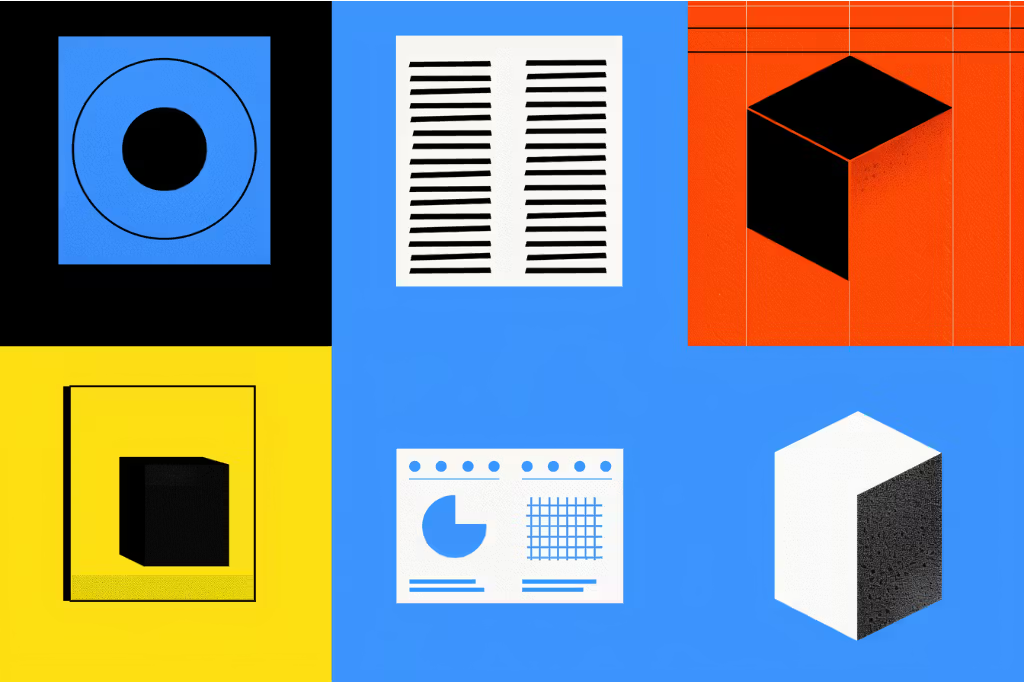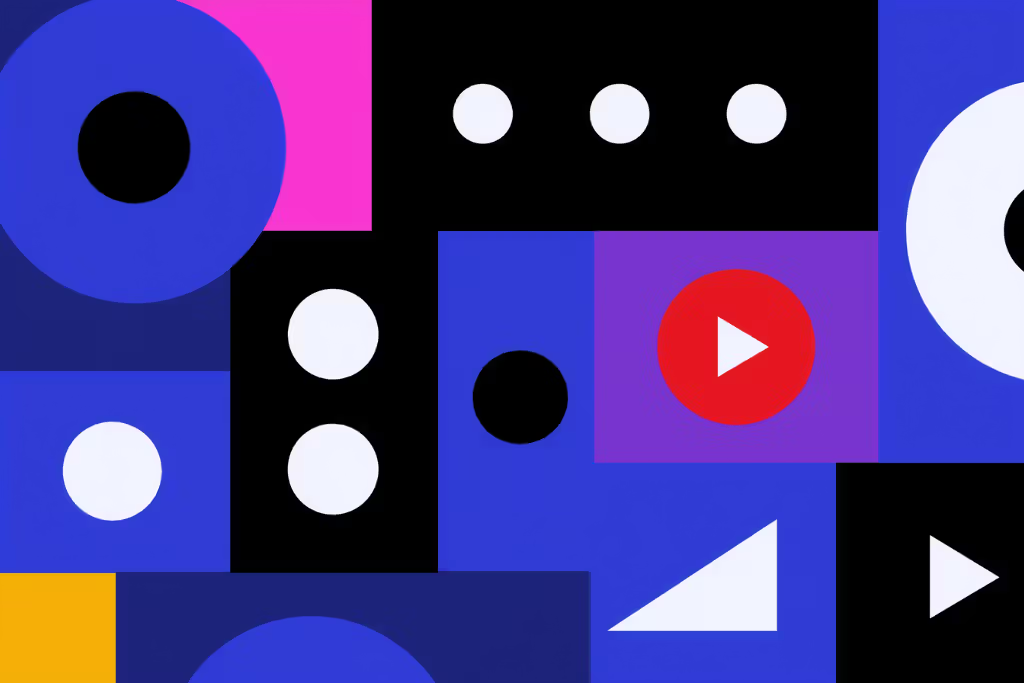Become a Content Creator: Content Creation for Non-Experts

Why Content Creation Doesn't Require Expert Status (And How to Create Great Content Anyway)
Here's the truth nobody wants to admit: you don't need to be a content marketer with years of experience to create web content that actually matters. I know, I know. Every content creation guide out there tells you otherwise. But what if I told you that your 'amateur' status might actually be your secret weapon?
This article will challenge everything you think you know about content creation and show you how to create great content by embracing what makes you human, not what makes you 'expert'. If you're tired of waiting until you're 'qualified enough' to start sharing your voice, this one's for you.
What Is Content Creation Really? (Hint: It's Not What They Tell You)
Let's start with some honesty, shall we?
Content creation isn't some mystical art form that only a few chosen content creators can master. At its core, content creation is simply the process of sharing your thoughts, experiences, and insights in a way that helps others. That's it. No magic formula, no secret sauce, no years of studying required.
The problem is, we've been conditioned to think that every piece of content needs to be polished, perfect, and produced by someone with impressive credentials. But here's what I've discovered after years of creating content: the most engaging content often comes from people who are still figuring things out.
When you create content from a place of learning rather than knowing, something magical happens. Your audience connects with your journey because they're on a similar path. They don't need another guru telling them what to do from the mountaintop. They need someone walking alongside them, sharing what they're discovering along the way.
How Do You Actually Start the Content Creation Process?
The biggest lie in digital marketing is that you need a comprehensive content strategy before you can begin. Listen, I've seen people spend months planning their content creation process and never actually create anything. Analysis paralysis is real, and it's keeping you from helping the people who need to hear your voice.
Here's how to actually start: pick one type of content and commit to it for 30 days. Whether it's writing, video, or social media posts, consistency beats perfection every single time. I started by writing one LinkedIn post every day about what I was learning in my business. No fancy graphics, no professional photography, just honest thoughts about my journey.
The content creation process becomes infinitely easier when you stop trying to manufacture content and start documenting your actual experiences. Your daily challenges, your small wins, your 'aha' moments - these are goldmines for content ideas. The key is capturing these moments before you forget them.
What Type of Content Should You Create When You're Not an Expert?
This is where things get interesting. Traditional content creators will tell you to create content in your area of expertise. But what if you don't have a clearly defined area of expertise yet? What if you're a multi-passionate person with interests in several areas?
Here's a radical idea: create content about your learning process. Document your journey as you figure things out. Share your mistakes, your discoveries, your questions. This type of content is incredibly valuable because it meets people exactly where they are.
Some of the most powerful digital content I've seen comes from people sharing their real-time learning experiences. A software developer learning design, a marketer exploring psychology, a teacher building a side business. These stories resonate because they're authentic and relatable.
The beauty of this approach is that you don't need to wait until you've 'arrived' to start helping others. You just need to be a few steps ahead of someone else on the same path.
What Content Creation Tools Do You Actually Need?
Let me save you from the tool trap that catches so many aspiring content creators. You don't need the latest and greatest content creation tools to make an impact. In fact, some of the most successful content creators I know use surprisingly simple setups.
For writing content, you need a text editor and a platform to publish. That's it. Google Docs and LinkedIn, or Notion and Medium, or even the notes app on your phone and Twitter. The tool doesn't make the content great; your perspective does.
If you're creating video content, your smartphone camera is probably better than what many YouTubers started with. Good lighting (natural light works) and clear audio matter more than expensive equipment. For social media content, Canva's free version will handle 90% of your design needs.
The real content creation tools that matter aren't software programs. They're habits: the habit of paying attention to your experiences, the habit of taking notes on your learnings, the habit of asking yourself 'How could this help someone else?'
How Do You Plan Social Media Content Without Burning Out?
Content planning doesn't have to be this elaborate, color-coded calendar situation that overwhelms you before you even start. I've found that the best approach to social media content is to think in themes rather than individual posts.
Pick one theme for each day of the week. Maybe Monday is 'Mistakes Monday' where you share something you learned from a recent mistake. Wednesday could be 'Work-in-Progress Wednesday' where you show behind-the-scenes of your current projects. Friday might be 'Figure-it-out Friday' where you share a problem you're currently solving.
This type of content planning gives you structure without being rigid. It also makes content creation feel less overwhelming because you're not starting from scratch every day. You know that on Monday, you need to think of a recent mistake you can share. Much easier than staring at a blank screen wondering what to post.
The key is choosing themes that align with your learning journey. This ensures your content remains authentic while providing consistent value to your audience.
What Makes High-Quality Content When You're Still Learning?
Here's where the traditional advice gets it backwards. They'll tell you that high-quality content requires extensive research, perfect grammar, and polished presentation. But I've seen poorly formatted posts with typos get more engagement than perfectly crafted articles because they felt human.
High-quality content is content that genuinely helps someone. It could be a simple insight that saves someone time, a mistake that helps someone avoid the same pitfall, or a question that makes someone think differently. The quality isn't in the polish; it's in the impact.
When you create and share content from your learning journey, you're automatically creating valuable content because you're solving problems in real-time. Your struggles today become someone else's roadmap tomorrow. Your questions today become someone else's starting point.
The most successful content I've created has been the most vulnerable. The posts where I admitted I didn't know something, where I shared a failure, where I asked for help. These pieces of content connected with people because they felt real.
How Do You Create Content That People Actually Want to Share?
Forget everything you've heard about viral content and shareability. The content that gets shared the most isn't necessarily the flashiest or the most clever. It's the content that makes someone feel seen, understood, or less alone.
When you create content about your learning journey, you're automatically tapping into this sharing instinct. People share content that reflects their own experiences or aspirations. When someone reads your post about overcoming imposter syndrome or learning a new skill, they think 'Yes, this is exactly how I feel!' and they share it.
Effective content for sharing often includes a clear takeaway that someone can apply immediately. It doesn't have to be groundbreaking; it just has to be useful. Sometimes the most shareable content is the simplest: a reminder, a reframe, or a permission slip to be imperfect.
The best way to create shareable content is to be ruthlessly honest about your own experience. Share the stuff you wish someone had told you when you were starting out. Create the content you needed to see six months ago.
What Role Does Digital Marketing Play in Content Success?
Here's what most digital marketing advice gets wrong: it focuses on tactics before relationship. You don't need to master SEO, algorithms, or growth hacking to build an audience. You need to consistently show up as yourself and provide value to the same people over time.
Digital marketing for content creators is actually quite simple: create valuable content consistently, engage genuinely with others, and trust that the right people will find you. I know that sounds almost too simple, but I've built my entire business on this foundation.
The most effective content marketing strategy is to treat your content as a conversation, not a broadcast. Ask questions, respond to comments, engage with others' content. Build relationships, not just follower counts. This approach takes longer but creates much deeper connections.
Your content strategy doesn't need to be complex. Pick one or two platforms where your ideal audience hangs out, show up consistently, and focus on being helpful rather than being seen. The visibility will come as a natural result of providing value.
How Do You Deal With Sharing Content When You Feel Unqualified?
Let me address the elephant in the room: the voice in your head that says 'Who am I to share this? What if people think I'm a fraud? What if I get it wrong?'
First, you're not alone. Every content creator deals with this, even the ones who seem supremely confident. The difference is they've learned to create content despite the fear, not in the absence of it.
Here's a perspective shift that changed everything for me: your content isn't about proving you're an expert. It's about sharing what's working for you so far. When you frame it this way, there's no pressure to have all the answers. You're simply sharing your current understanding with the caveat that you're still learning.
The truth is, your 'unqualified' perspective might be exactly what someone needs. The expert who's been doing something for 20 years might struggle to remember what it's like to be a beginner. You, on the other hand, are living that beginner experience. You understand the real challenges, the actual confusion, the genuine fears.
Some of my most helpful content has come from sharing things I was figuring out in real-time. I didn't wait until I had it all worked out. I shared my process, my experiments, my failures. And people found it incredibly valuable because it was real.
How Do You Measure Content Success Without Vanity Metrics?
The content creation industry is obsessed with metrics that don't actually matter: likes, shares, reach, impressions. These numbers can make you feel good in the moment, but they don't tell you if your content is actually helping anyone.
Instead, pay attention to the quality of engagement you're getting. Are people leaving thoughtful comments? Are they asking follow-up questions? Are they sharing their own experiences in response to yours? These are signs that your content is resonating and creating genuine connection.
The best content audit you can do is to look at which pieces generated the most meaningful conversations. What topics made people feel comfortable enough to share their own stories? What questions prompted the most thoughtful responses? This tells you far more about your content's impact than view counts ever could.
Another way to measure content success is by tracking how it's helping you achieve your broader goals. Is your content helping you clarify your own thinking? Is it leading to meaningful connections with like-minded people? Is it opening doors to new opportunities? These outcomes matter more than any vanity metric.
Most Important Things to Remember About Content Creation
• Start before you're ready - You don't need expert status to help others; you just need to be a few steps ahead on the journey
• Document, don't manufacture - Your real experiences and learning process are more valuable than manufactured 'expert' content
• Consistency beats perfection - Regular, authentic sharing trumps polished, infrequent posts every time
• Quality means helpful, not polished - High-quality content solves problems and connects with people, regardless of production value
• Your perspective matters - Your unique viewpoint and current challenges are exactly what someone else needs to hear
• Engagement over reach - Focus on creating meaningful conversations rather than chasing large audiences
• Simple tools are enough - You don't need expensive equipment or software to create impactful content
• Vulnerability is strength - Sharing your struggles and uncertainties creates deeper connections than projecting perfection
• Themes simplify planning - Organize your content around consistent themes related to your learning journey
• Share your process - People want to see how you figure things out, not just your final results
• Progress over perfection - Your content will improve over time; start with where you are now
• Authentic beats authoritative - Being real and relatable is more powerful than positioning yourself as an expert
• Help first, promote second - Lead with value and genuine assistance rather than self-promotion
• Your questions are content - The things you're wondering about are probably what others want to know too
• Community over competition - Engage genuinely with others' content and build relationships within your space
You don’t need to know it all — just show up.
If you’ve been stuck waiting to feel “ready,” this is your sign. You don’t need a polished plan or a perfect offer. You just need to start documenting the journey.
Short heading goes here
Lorem ipsum dolor sit amet, consectetur adipiscing elit.











Lorem ipsum dolor sit amet, consectetur adipiscing elit. Suspendisse varius enim in eros elementum tristique. Duis cursus, mi quis viverra ornare, eros dolor interdum nulla, ut commodo diam libero vitae erat. Aenean faucibus nibh et justo cursus id rutrum lorem imperdiet. Nunc ut sem vitae risus tristique posuere.
Lorem ipsum dolor sit amet, consectetur adipiscing elit. Suspendisse varius enim in eros elementum tristique. Duis cursus, mi quis viverra ornare, eros dolor interdum nulla, ut commodo diam libero vitae erat. Aenean faucibus nibh et justo cursus id rutrum lorem imperdiet. Nunc ut sem vitae risus tristique posuere.